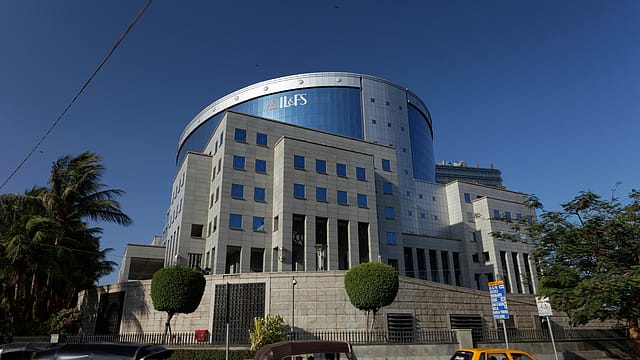IL&FS Financial Services’ top executive and four independent directors quit
ADVERTISEMENT

The malaise of defaults at Infrastructure Leasing & Financial Services (IL&FS) is starting to have casualties. On Friday, hours after IL&FS informed the stock exchanges that it was unable to service its obligation in respect of a LC (Letter of Credit) payment to IDBI Bank, IL&FS Financial Services announced that the company’s managing director and CEO, Ramesh C. Bawa, had quit with immediate effect.
The developments at IL&FS Financial Services came a day after the company informed the stock exchanges that four independent directors—Renu Challu, Surinder Singh Kohli, Shubhalakshmi Panse and Uday Ved—as well as non-executive director Vibhav Kapoor had resigned.
The problems at the IL&FS Group have been spiralling. It defaulted on commercial papers due on September 14, September 17, and September 18 and also defaulted on interest obligations on non-convertible debentures (NCDs) on September 17. According to unconfirmed media reports, the defaults are worth ₹300-400 crore.
The financial troubles at IL&FS, a Mumbai-based conglomerate that funds infrastructure projects in India, have increased concerns about their impact on Indian lenders, already saddled with bad loans worth over ₹10.5 lakh crore. The exposure to state-run banks has heightened these concerns and some reports have even dubbed it India’s Lehman moment.
Media reports say the company is sitting on a debt pile of around ₹91,000 crore. Ratings agencies have already taken note. On September 19, IL&FS informed the stock exchanges that ICRA had downgraded its NCDs to IND D off Ratings Watch Negative. The ratings indicate that the threat of default is likely soon. Similarly, on September 18, India Ratings & Research downgraded ₹10,985.08 crore of IL&FS debt as IND D off Ratings Watch Negative.
“IL&FS is facing liquidity challenges across the group and their ability to mobilise funds from banks and capital markets is modest at the best. Hence, in spite the group’s strength in India’s infrastructure space, their ability to execute projects in the pipeline and take up new assignments could be impacted significantly in the near to medium term,” India Ratings said in its statement. “The company plans to transform itself into a capital-light business model and focus on pure-play service offerings in the infrastructure space—the execution of this plan will need the support of all existing stakeholders, including shareholders and lenders.”
Meanwhile, the troubles at IL&FS are already having a knock-on effect at other non-banking financial companies (NBFCs). The S&P BSE Sensex saw a 1,500 point swing on Friday, finally closing 279 points in the red at 36,841.60 as investors panicked at the prospect of a default in housing finance companies. The panic was triggered after DSP Mutual Fund sold commercial paper of Dewan Housing Finance Corporation Ltd (DHFL) at a high yield. Selling off debt instruments at a high yield indicates a threat of default. But, DHFL’s top management clarified that any threat of default was simply rumours.
“This market movement has come as a big surprise to not only DHFL as an organisation it is also for the industry at large. We wish to categorically state that DHFL has not defaulted on any bonds or repayment nor has there been any single instance of delay on any of its repayment of any liability. We do not have any exposure with IL&FS. DHFL continues its loan growth disbursements in the affordable housing segment going forward. The loan disbursements were ₹13,582.9 crore for the quarter ended June 30, 2018, showing an increase of 65% over the corresponding quarter of the previous year,” DHFL’s chairman and managing director Kapil Wadhwan said in a statement.
DHFL’s shares, which started falling at 12.19 pm, recovered marginally after Wadhwan’s statement but ended the day 42.43% lower on the BSE at ₹351.55.